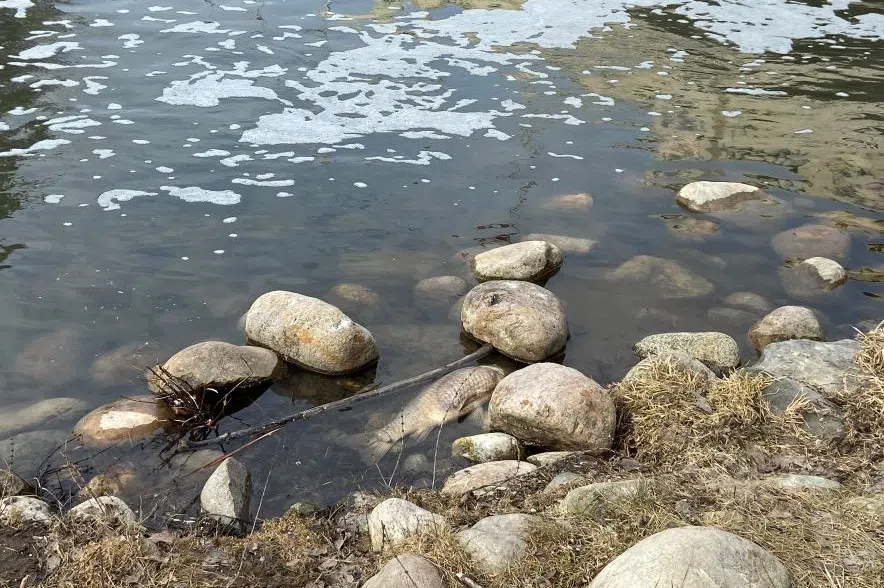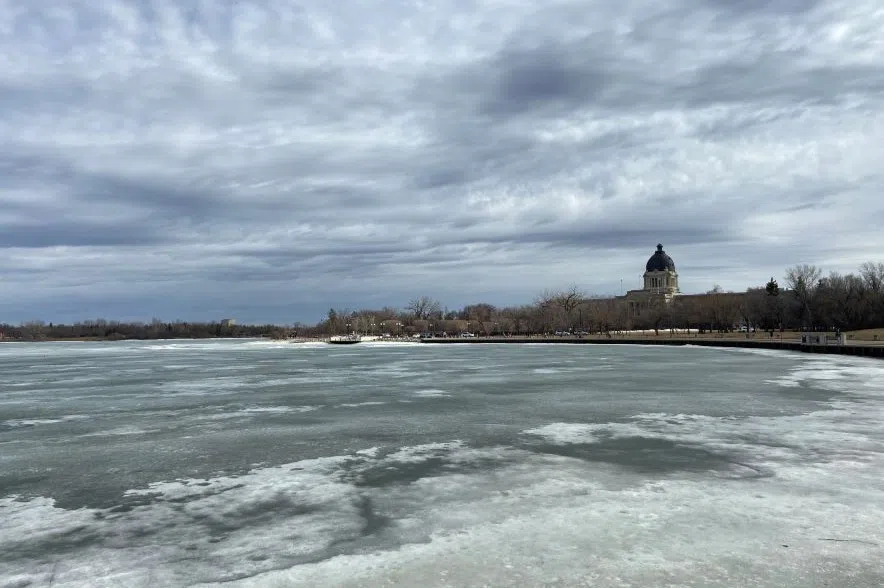People who live on the prairies tend to get used to what some would call “bad smells,” whether it’s wildfire smoke, pig barns or a landfill.
But it is not only a rural phenomenon — Regina’s Wascana Lake stinks almost every year.
Read more:
- Regina urban wildlife research reveals 143 bird species and 15 mammals
- U of R President address the concerns after URSU fee collection cut
- Police identify man’s body found in Regina on Sunday
According to Jenna Schroeder, Executive Director of the Provincial Capital Commission which administers the park, the smell doesn’t pose any risk and is a very natural thing.
“The smell that people are noticing this spring here, it’s normal. It’s caused by anaerobic bacteria that builds up under the ice during the winter and as the ice melts in the spring that gas buildup is released,” she said.
Spring flow in Wascana Creek. (video by Nicole Garn/980 CJME)
Anaerobic bacteria help break down organic matter such as dead plants, animals and more in areas with low oxygen. The problem is quite common in Saskatchewan.
“The lakes that we have in southern Saskatchewan, they’re quite shallow. There are nutrients in them in the absence of oxygen and that bacteria is going to grow during the winter. And really it gets trapped under that ice. Once the ice starts to melt, and oxygen is able to get back into the water column as it’s mixing in the spring, that odour from the bacteria gets released,” said Schroeder.
Luckily for people living in the Wascana area, the smell shouldn’t stick around very long.
“It’s different from season to season. Really, it depends on how quickly the ice melts in the spring, but it’s usually no longer than a couple of weeks,” said Schroeder.

Dead fish in Wascana. (Nicole Garn/980 CJME)
Dead fish a different issue
While the smell might be the most apparent problem with Wascana Lake, there are some other things that people are noticing — like a large amount of dead fish.
According to Schroeder, the dead fish can contribute to the overall smell of the area, but they are two different issues.
“The carp themselves, they’re bottom feeders, so they’re at the bottom of the lake, and the dissolved oxygen at the depths of the lake, as it gets used up and the ice melt doesn’t happen soon enough in the spring, oxygen can’t get down to them and some of those fish are going to die off,” said Schroeder.
As for the smell coming out of the lake, Schroeder said we are stuck with it.
“The smell is going to happen. There really isn’t something to prevent it.”
Read more:











